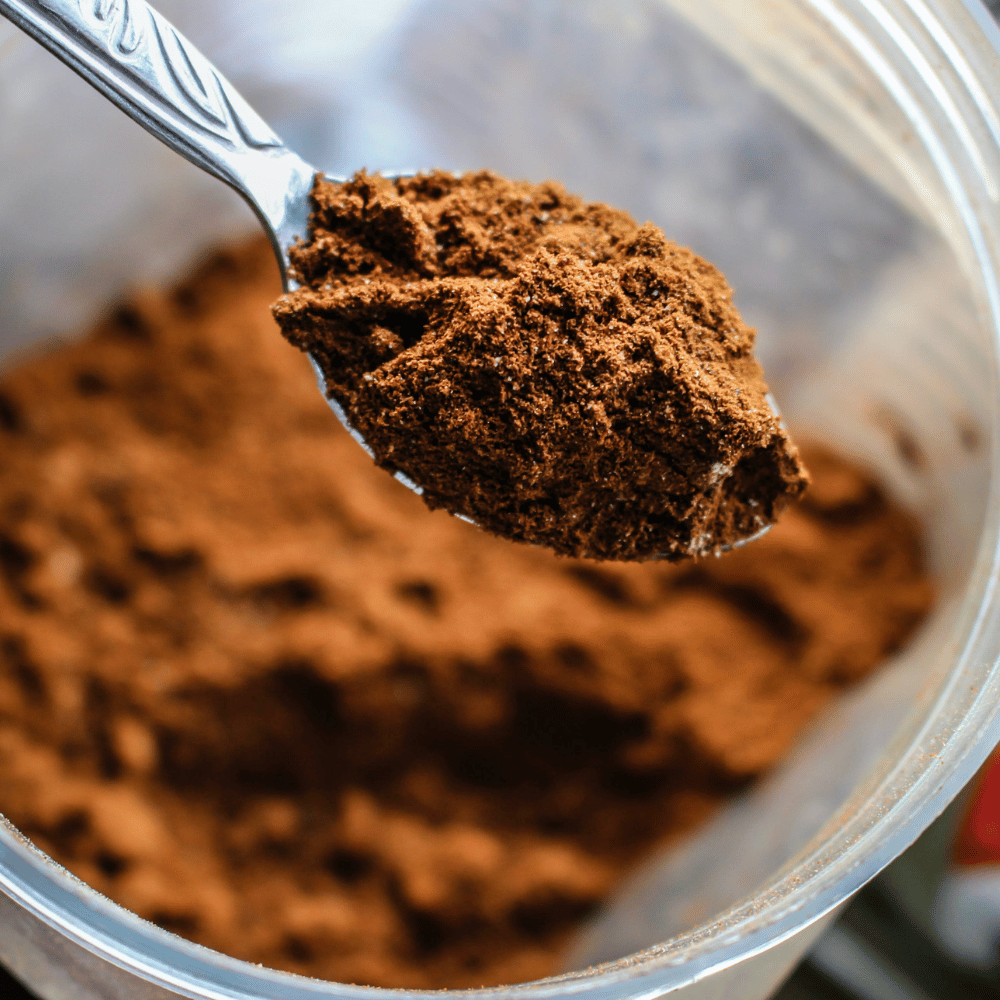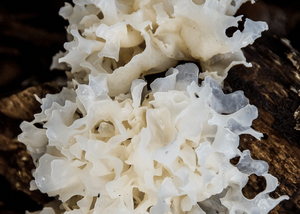Key Takeaways:
Lion's Mane mushroom, a unique nootropic natural wonder, has been a subject of fascination for both traditional medicine practitioners and modern scientists. Its potential therapeutic benefits have sparked a wave of interest in the health and wellness community. But can it cure diseases? Let's delve into the world of Lion's Mane mushroom powder and uncover the truth behind its medicinal claims.
Key Takeaways:
- Lion's Mane mushroom has been studied for its potential neuroprotective and cognitive-enhancing effects.
- Research suggests that Lion's Mane may have benefits for the digestive system and immune health.
- While promising, more research is needed to determine Lion's Mane's ability to cure diseases conclusively.
What is Lion's Mane Mushroom?
Hericium erinaceus, commonly known as Lion's Mane mushroom, is a white, globe-shaped fungus with long, shaggy spines. It grows wild on hardwoods in North America, Europe, and Asia. Traditionally used in Chinese medicine, it's gaining popularity as a dietary supplement in the form of powders and extracts.
The mushroom is rich in bioactive compounds, including hericenones and erinacines, which are thought to be responsible for its potential health benefits. These compounds have been the focus of numerous studies aiming to understand their effects on human health.

The Neuroprotective Potential of Lion's Mane
Lion's Mane is fascinating for its suggested neuroprotective qualities. Studies indicate that the mushroom may induce the generation of nerve growth factor (NGF), a pivotal protein essential for the development, upkeep, and viability of neurons.
A study published in the International Journal of Medicinal Mushrooms found that Lion's Mane extract could potentially help in the treatment of neurological diseases such as Alzheimer's and Parkinson's. However, it's important to note that most of these studies have been conducted in vitro or on animal models, and human clinical trials are limited.
Lion's Mane and Cognitive Function
Beyond its neuroprotective effects, Lion's Mane has also been associated with cognitive enhancement. Some studies suggest that regular consumption of the mushroom could improve memory, concentration, and overall cognitive function.
For instance, a Japanese study on adults diagnosed with mild cognitive impairment showed that consuming Lion's Mane mushrooms could improve cognitive function. However, these effects were not observed after the discontinuation of the mushroom intake, indicating that continuous consumption might be necessary to maintain the benefits.

Digestive Health and Lion's Mane
Lion's Mane may also offer benefits for the digestive system. Its anti-inflammatory properties have been suggested to help with gastritis, ulcerative colitis, and other inflammatory bowel diseases.
Research has indicated that the mushroom can protect against stomach ulcers by inhibiting the growth of H. pylori and protecting the stomach lining from damage. However, human studies are needed to fully understand the extent of these benefits.
Immune System Support
The immune-modulating effects of Lion's Mane are another area of interest. The mushroom is believed to enhance the immune system by increasing the activity of certain white blood cells, which help fight off pathogens and reduce inflammation.
A study published in Food & Function highlighted the potential of Lion's Mane to act as an immune booster. Yet, as with other areas of research, more comprehensive human studies are required to confirm these findings.

Lion's Mane and Mental Health
Emerging research suggests that Lion's Mane could have a positive impact on mental health, potentially alleviating symptoms of anxiety and depression. This is thought to be due to the mushroom's anti-inflammatory effects and its ability to stimulate NGF.
A small clinical trial found that menopausal women who consumed Lion's Mane baked goods reported reduced feelings of irritation and anxiety. While these results are promising, larger-scale studies are necessary to validate these effects.
Antioxidant Properties of Lion's Mane
Antioxidants are crucial for combating oxidative stress, which is linked to numerous chronic diseases. Lion's Mane mushroom is rich in antioxidants, which may contribute to its potential health benefits.
Studies have shown that the mushroom has high antioxidant activity, which could theoretically reduce the risk of diseases caused by oxidative stress, such as heart disease and cancer. However, direct evidence linking Lion's Mane consumption to reduced disease risk in humans is still lacking.

Lion's Mane and Cancer Research
The potential anti-cancer properties of Lion's Mane are being explored, with some laboratory studies showing that the mushroom can inhibit the growth of cancer cells. For example, research has demonstrated its effectiveness against leukemia cells and certain types of cancerous tumours.
Despite these encouraging findings, it's important to approach claims of Lion's Mane as a cancer cure with caution. Clinical trials on humans are necessary to determine its efficacy and safety as a complementary cancer treatment.
Safety and Side Effects
Lion's Mane is generally deemed safe for the majority, with minimal reported side effects. Nonetheless, like any supplement, it's crucial to seek advice from a healthcare professional before initiating a new regimen, particularly for individuals with allergies or those on other medications.
Some individuals may experience gastrointestinal discomfort or allergic reactions when consuming Lion's Mane. It's also worth noting that the quality of Lion's Mane supplements can vary, so choosing a reputable brand is crucial.
The Verdict on Lion's Mane Mushroom Powder
While the research on Lion's Mane mushroom powder is promising, it's premature to claim that it can cure diseases. The mushroom has demonstrated potential benefits for brain health, the immune system, and more, but further research, particularly in human clinical trials, is needed to fully understand its therapeutic potential.
It's also important to remember that Lion's Mane should not be used as a substitute for conventional medical treatment. Instead, it may serve as a complementary approach to overall health and wellness.
Summary
Lion's Mane mushroom powder has become quite the sensation in the health community, thanks to its potential benefits for brain health and overall well-being. This unique supplement is believed to offer neuroprotective, cognitive-enhancing and immune-boosting properties. While research suggests positive impacts of lion's mane powder benefits on various health conditions, it's essential to note that, at present, there isn't enough evidence to confidently claim disease-curing abilities. The ongoing studies on lion's mane mushrooms continue to unveil their fascinating potential in supporting health in multiple ways. So, while we're not handing out a prescription for miracles, lion's mane supplements might just be your brain's new best friend!
FAQs
Can Lion's Mane mushroom powder cure Alzheimer's disease?
While research indicates that Lion's Mane may have neuroprotective properties and could potentially aid in the treatment of Alzheimer's, there is no conclusive evidence that it can cure the disease. More human clinical trials are needed.
Is Lion's Mane mushroom safe to consume?
Lion's Mane is generally considered safe for most people. However, some may experience side effects such as gastrointestinal discomfort or allergic reactions. It's always best to consult with a healthcare provider before starting any new supplement.
How should Lion's Mane mushroom powder be consumed for health benefits?
Lion's Mane can be consumed in various forms, including powder, capsules, or extracts. The dosage and method of consumption can vary, so it's recommended to follow the instructions on the supplement label or consult with a healthcare professional.
What does Lion's Mane treat?
Lion's Mane mushrooms, celebrated for their potential health benefits, particularly in brain health and cognitive function, have garnered attention. While not a cure, ongoing studies delve into the positive effects of Lion's Mane extract and supplements on overall well-being. It's important to approach these potential benefits with caution and consult professionals for guidance on integrating Lion's Mane into a regimen aimed at enhancing brain function and promoting overall health.
When should I stop taking Lion's Mane?
Deciding when to stop taking a Lion's Mane supplement depends on individual health goals and responses. While Lion's Mane is associated with potential brain health benefits and overall well-being, there's no specific guideline on the duration of use.
Some use it continuously for ongoing support, while others may cycle on and off. Monitoring personal effects and consulting healthcare professionals can guide decisions on the duration of Lion's Mane supplementation to optimize its potential benefits for brain function and overall health.
Can lion's mane repair nerve damage?
While research on the benefits of lion's mane suggests potential neuroprotective properties, claiming it can repair nerve damage requires further study.
Lion's Mane is associated with health benefits, especially in brain function, and is available in various forms like supplements and extracts. While it holds promise for overall health, conclusive evidence on nerve damage repair is lacking.
Consultation with healthcare professionals is advised for a comprehensive understanding of Lion's Mane mushroom powder benefits and its potential role in promoting neural health













Member discussion